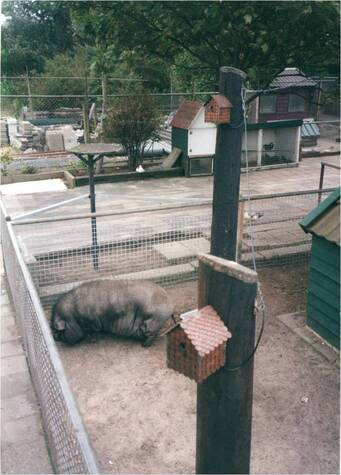-
in gallery
- Transit Transition >
- Remnants Of Utopia >
-
Antarctica
>
- Project Outline
- Antarctica Essay
- Reviews
- Sledge
- Toy Sledge
- Airfix Antarctic Aeroplane Hoover
- Eating Penguins
- The Rime Of The Ancient Mariner
- Toy Snowmobile
- Rat Box, Bird Island
- Rejection Letters
- The Last Roll Of Kodachrome In The World
- John Deere Gator And Specimen
- There Are No More Dogs In Antarctica
- Furthest South- J C B
- Captain Scotts Bookshelf
- Antarctic Toy Portraits
-
Landscape, Seascape, Skyscape , Escape
>
-
Offer Must End Soon
>
- Essay Jess Twyman
- Reviews
- Offer Must End Soon
- Buy My Painting!
- "Buy My Painting!" For the hard of hearing.
- "Don't Make Me Take It All Back Home With Me!"
- How We Won The War
- "Stop me and buy one!"
- 'The Cornfield'... free gift inside
- "Catalogue!"
- The Contemporary Art Scene
- Camera Crash
- "Untitled" hanging itself
- Buy My Fucking Painting!
- Absolut Ship !
- Executive Toy!
- Art Stunt Suicide Disaster
- Roll up, Roll up. Get your Art here!
- Big Country >
- All at Sea
- & Model >
- Give Me The Money
- Music and domestic appliances >
- ...on the wall...in boxes >
- Sweet Jars, glass cases on books >
- On Stage
-
Outside gallery
- Auspicious Phoenix Recycling Palace
- Covid lockdown with Boris >
- Goat Train
- washed up Car - go >
- Vanishing Point >
- Badgast Residency >
- Selfie Slot Car Racing >
- Coventry Transport Museum Residency >
- Cheap Cheap >
- A Portrait of Casper DeBoer
- Cranes
- Hessle Road Residency >
- Reisbureau Mareado >
- Windmills >
- Performance Sculptures >
- Accessible Collectible
-
publications
- Solo projects >
-
Group Projects
>
- oceans
- Photography, Curation, Criticism:
- Art in Oisterwijk 2022
- Talk to me
- & Model
- Middlesbrough Art Weekender
- Polar Record
- Translating the Street
- 1st Sino/british Cont. Art, Yentai
- Extending Ecocriticism
- The Dream Cafe
- Performance, Transport And Mobility
- shipwreck in art and literature
- Inbetween PS1, New York and Shanghai
- Odd Coupling
- Landscapes of Exploration
- IT! The Worst Magazine Ever : Poland
- Flip Shift Show Switch
- Baudrillard Now
- The Juddykes
- Dr Roberts Magic Bus
- Continental Breakfast
- Lat (living Apart Together)
- North. Amsterdam 2004
- Westwijk, Vlaardingen, De Strip
- Da Da Da Strategies Against Marketecture
- Reisburo Mareado (The Travel Brochure)
- Catalogus Mareado
- Kunst Over De Grens
- This Flat Earth
- The Uses of an Artist
- Kettles Yard Open 97
- Royal College Of Art Centenary Year
- Millennium Encyclopedia
- Press
- About / contact
A bit of context: I love this slightly condescending piece in 'the Volksrant' but to fully appreciate it you have to know some of the background. The organisers of this group show had led the artist's to believe that the budget was going to be bigger than it was. As you can imagine, finding this out half way through the development of the artwork and having to start again was very annoying. I decided to use my frustration as the central component of the piece. Irritation was compounded further by the inaccurate accompanying catalogue for this exhibition which the journalist has obviously used as a reference. To gloss over the real financial issues at the core of the work, the catalogue instead makes tenuous references to 'Dutch frugality' and 'sheep' in it's interpretation. The couple who ran the farm were lovely but the article in the paper also quotes her as saying "I can keep it!" - A clue that suggests the organisers had misled them as well. The work actually had to go back to England where someone had already agreed to buy it.
Artists on the edge of the country by Fred De Vries
|
...And the day trippers on their folding chairs will shrug their shoulders when they see the work of the English angry young man Chris Dobrowolski. Cheap Cheap is a sound installation set up in the petting zoo, in the pig pen for the fat black boar. The enticing 'cheap, cheap, cheap' sounds, in different pitches, come from two bird boxes covered with pennies.
It is an indictment by Dobrowolski against the contemporary art world, where everything is quickly considered 'too expensive', but also a reference to Dutch frugality and to the sheep mentality of man ('cheap' sounds a bit like 'sheep'). "I can keep it," says the woman who manages the children's farm. "In the beginning I was driven crazy by that ssip sip sip, but now I don't hear it anymore. Quite a lot of people pass by, with the route map in their hand. Others want to know if they should put money into it. Then I say it's art...It's just a pity that the goats ate the explanation plate." |
Click this button for the 'Cheap Cheap' page
